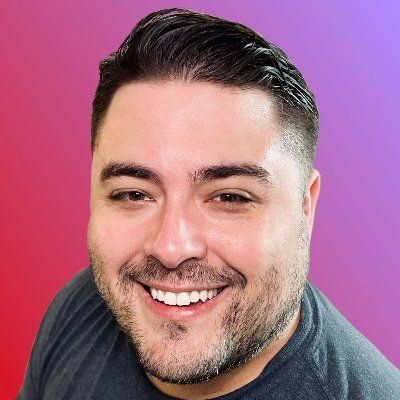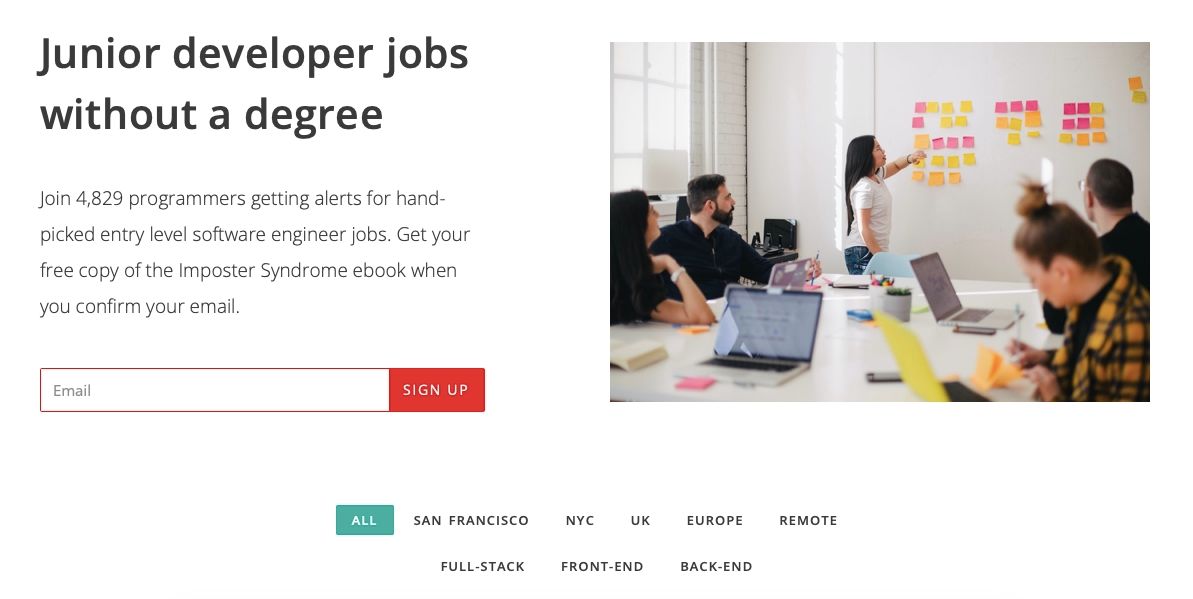Chris and his partner bought their dream house after Chris learned PHP and became a developer. We talked through his motivations for learning PHP, the benefits of learning programming and his tips for beginners.
Hey, so can you introduce yourself?
Hey there, my name is Chris Arter and I’m a Senior Software Engineer at BankRate / RedVentures and I live in Raleigh, North Carolina, USA. I’m originally from Florida (Duuuuval! Go Jags!).
Why did you learn to code?
At first, it felt like a compulsion. I would spend hours and hours of my freetime coding and trying to get things to work, because I just simply couldn’t resist. For weeks my XBOX would collect dust. My spare time was spent tinkering with frameworks and projects.
My curiosity around coding actually started when I was much younger. At the age of 10 or 11 years old, I was making simple websites with Microsoft FrontPage 2000. I even had my own .com, which was a big deal back then for a kid. Eventually, during college I picked up the itch again and started coding on my own, but taking it seriously this time.

How did you learn coding?
Around 2009/2010, I would sleep either in my car or a friend’s garage. I was absolutely dead-broke. At the height of the recession, I found myself jobless with a lot of time on my hands. Taking advantage of a neighboring townhouse with unsecured WiFi, I was able to use it to watch coding tutorials on YouTube.
There weren’t a lot of bootcamps or Udemy classes back then. I had to rely on strangers kind enough to share their knowledge on YouTube, way before “influencers” and “thought leaders.” For me, that stranger was a teenage kid teaching the basics of PHP.
After learning the basics of PHP, I started to learn WordPress. I stumbled around StackOverflow questions, more YouTube tutorials, trial and error, and hours at my desk. I would get stuck on a bug, Google it, paste, repeat. I did this for three years.
Around 2014, I started working for a friend’s aviation startup in the shop as a mechanic, but quickly moved up into the office helping build the company’s WordPress site. While not officially by title, I was being paid to write code and build things. Then, everything changed in 2015.
As I built more with WordPress, I noticed I was starting to shoehorn it into full applications. Even as a newbie, I could tell I was outgrowing it. That’s when I learned a technology that would change the trajectory of my career forever: Laravel.
I kept seeing “Laravel” among Reddit threads and other forums. I decided to take a dive in, and it was a complete game changer. I was exposed to concepts that immediately clicked. Learning each section of the framework was one aha moment after another.
I continued to learn & use Laravel internally at our aviation startup for two more years, until I mustered up the courage to apply for a full-time developer position. In 2017, a company called Launch That in Orlando took a chance on me, and it’s been a lucrative wild ride ever since.
Looking back, my only regret is that I didn’t have the courage to put myself out there sooner. From beginning my self-learning journey to hired as a full-time developer took me 7 years. It didn’t take that long because I had that much to learn about code; it took that long because I had that much to learn about myself. It took 7 years to believe I could do it.
How has your life changed since learning to code?
Before learning to code, the max I had earned was $21 USD per hour (~$42,000 Annual). Coming from years of waiting tables and working retail, this was decent money. Then, I found out my fiance was pregnant with our first child.
At the time, we were living in an increasingly dangerous area of Orlando, FL. Several sexual assaults took place in our apartment complex over the previous months, but it took a murder just 100ft from our front door to finally motivate us to move quickly.
In 2016, I scraped together $5,000 from WordPress freelancing and put a down payment on a small house with an FHA loan. I worked 8am - 5pm, and my Fiance (now Wife) would work from 6pm - 12am midnight. We hardly saw each other, and the distance our schedules created took a toll.
But, everything changed in 2017 when I accepted my first full-time developer role at Launch That. They offered me $55,000 per year. I couldn’t believe it. It was considerably more than I had ever made at that point.
Little did I know, I would more than triple my salary over the next four years. Today, between my base engineering salary as well as ongoing consulting clients, I gross close to $200,000 per year. We just completed building our new dream home, a 3,100 sq ft. 5 bedroom home in a beautiful sought-after suburb of Raleigh. This is a life I created starting small and never giving up.
Is PHP still a good choice for learners?
I love PHP for its utility. It just gets things done -- the reliable workhorse. Much of PHP’s reputation in the development community is from developer’s parroting a long-outdated (and lazy) take that PHP is dead. PHP 5.6 is a distant memory to the modern, performant PHP 7 & 8. But PHP being dead is the meme that ironcially just won’t die.
That said, I never like to be dogmatic about programming languages. PHP is great, but so are many others. More than the language, I would strongly encourage new learners today to find an opinionated framework. This matters so much more than the language it's written in.
Learning a batteries-included framework like Laravel, Rails, or Django give you an instant community of other developers that expose you to concepts that you’ll see everywhere else in your career. Here’s just a few of the concepts I learned just by learning Laravel alone:
- Queues
- Jobs
- Middleware
- ORMs
- Caching
- Dependency Injection
- API Design
Pick a language; learn it. But more importantly, pick an opinionated framework and learn it deeply. Get embedded in the community and you’ll be able to transfer that knowledge to many other frameworks and languages. I call it horizontal learning.
As for PHP, you won’t see trendy Medium & Dev articles about PHP and MySQL. That’s because it’s quietly powering massive amounts of the web in its trademark boring reliability. You’ll never be short of work with PHP, and with Laravel, you may even enjoy the work.
What does a typical day as a software developer look like for you?
Today, a typical day is balancing time to focus on writing code to complete a ticket and also participating in ad-hoc discussions on Slack about solving another team member’s problem, or answering a question for the business team.
I may have a brief zoom with a colleague in the morning related to a ticket we are working on together, followed by an hour or two of coding. After that it’s usually meetings till the end of the day. The more senior I become, the less coding time I get, it seems.
The ability to articulate technical challenges and tradeoffs to non-technical stakeholders is the primary skill I use every single day, aside from coding itself.
What was the interview process like for your first developer job?
My first full-time role interview process was conversational. I was given a technical problem, and I had to walk through, in detail, the steps I would take to solve the problem. At each step, I was asked to clarify or provide an alternate strategy. This is my favorite type of interview. It doesn’t feel as stiff as a whiteboard session, but still let’s me articulate my technical skills.
What are your career goals for the future?
My current career goal is to make Staff Engineer in the next 6 months and move into a technical mentorship role at my current organization. Aside from that, I love engaging with the tech community on Twitter @ChrisArter, and writing from time to time on my blog, https://arter.dev
I’ve also been hacking away at a niche B2B app in the aviation industry called FlightMotion (https://flightmotion.io). I’m also kicking around starting a YouTube channel to lower the ladder down behind me, just like someone did for me in 2010.
Thanks for the interview!
For more success stories, join our newsletter and get your free copy of the Imposter Syndrome ebook packed with advice for new developers.
Check out the Courses page to see coding courses recommended by self-taught web developers



